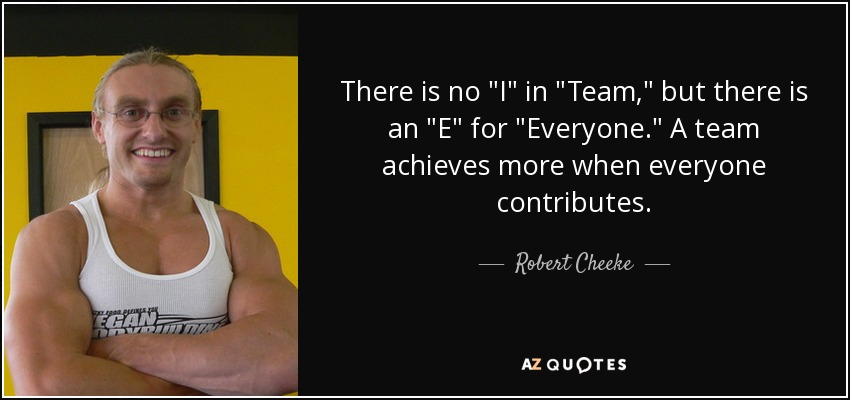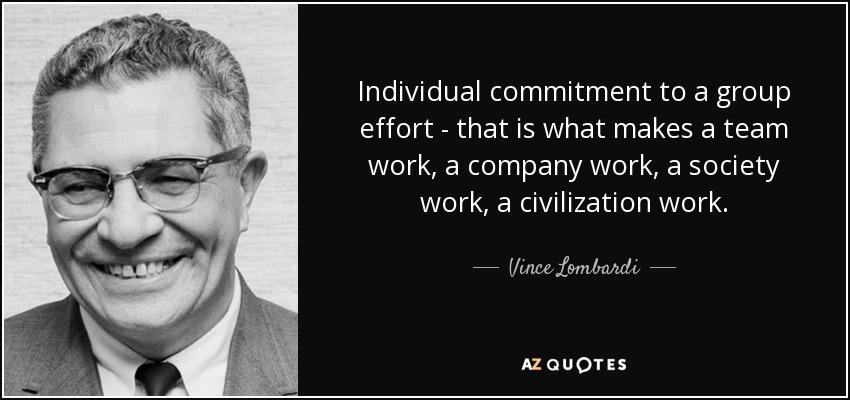Click here to return to Blog Post Intro

The Prayer Prayed for Us
When His world is crashing in around Him, what is the focus of Jesus’ prayer?
From John 17 (New Living Translation), “My prayer is not for them alone. I pray also for those who will believe in me through their message, that all of them may be one, Father, just as you are in me and I am in you. May they also be in us so that the world may believe that you have sent me. I have given them the glory that you gave me, that they may be one as we are one: I in them and you in me. May they be brought to complete unity to let the world know that you sent me and have loved them even as you have loved me.”
With time running out, Jesus didn’t pray for his disciples to be brave or persevering. He prayed that they would be one. He didn’t pray that we would be clever or compassionate, relevant or intelligent. He didn’t pray that we’d win debates or end world hunger. He prayed that we would be one.
When we realize that Jesus prayed for this one thing on the worst night of his life, it’s going to be awfully hard to not take it seriously.
The Example Set before Us
God is one. Do you think it’s possible that this was in the back of Jesus’ mind while he was praying for us? “Father, may they be one as we are one. Hear, O Israel: The LORD our God is one. The Lord our God is echad (that’s the Hebrew word translated as one).
What if understanding a little more about our triune God is the only way to appreciate what Jesus prayed for us that night?
When Christians talk about the Trinity, we’re not talking about dividing God up into thirds. Nor are we suggesting that Jesus was added as a second God to the Bible—sort of a late-breaking development.
While clinging to the oneness of God, the early Christians also experienced Jesus—who they came to believe was God in their midst—praying to God, his Father. Then Jesus promised to send the Holy Spirit after he left to be with the Father! This was hard to describe, but no one could deny what they had seen and experienced. Our multidimensional God defies description within our little ol’ three-dimensions-plus-time perception. And why wouldn’t he defy such limitations? God is beyond the universe he created, so of course he wouldn’t fit into any box we could make for him. And yes, that makes this a mystery of sorts.
Jesus invites us into the eternal dance of love between Father, Son, and Spirit. We are not to observe it from the outside, but as redeemed mortals, we are to enter the dance, enveloped in and baptized by God’s love, soaked through and through. Let us not forget that this spectating world was also on Jesus’ mind that night: “So that the world may believe that you have sent me.”
The Plan Laid for Us
A stand of aspens is a kind of colony of trees, all living off a single root system. All—and there are many—are connected to one another. They function as one organism—many distinct trees but still one because they share the same roots.
Creation always points toward the Creator and his genius.
Our connection to one another is not just how we survive in this world. It is how we will prevail. It is how we will glorify and honor Jesus.
The Challenge Ahead of Us
Culture has been called the second-most complicated word in the English language after nature. It is a funny word with many disparate definitions, so what’s one more? Culture is also defined as “a way of thinking, behaving, or working that exists in a place or organization.” Culture consists of the unspoken rules and practices that do not find their way into an employee handbook.
Edgar Schein is one of the leading theorists in the field of organizational culture. He was also a professor at MIT. He says the culture of a group is “a pattern of shared basic assumptions that was learned by a group as it solved its problems of external adaptation and internal integration.”
Let’s break it down into two parts:
- WHAT an organization does: An organization is busy trying to thrive in the world while welcoming new additions from the world.
- HOW an organization operates: A pattern of unwritten rules and assumptions start to form in that organization as it tries to accomplish number 1.
Schein suggests that what an organization does usually encompasses both an outward and an inward focus. Outwardly, they are accomplishing something: adapting and succeeding in the world. Inwardly, they are integrating: welcoming and training those who join their group along the way.
Does that sound familiar? This is the well-known mission Jesus gives his followers in Matthew 28: “Therefore go and make disciples of all nations, baptizing them in the name of the Father and of the Son and of the Holy Spirit, and teaching them to obey everything I have commanded you.”
What we do and how we do what we do—they both matter. This is the way of Jesus.
THE NUTS AND BOLTS
In the Presence of Humility
In Romans 12, Paul uses a picture of the human body’s many parts functioning as one. This is the genius of God, who has stitched us together with all our various stories, abilities, and viewpoints. This is the work of God, but Philippians 2 seems to suggest there is a choice in all of this. Be like-minded. Make the conscious decision to cultivate this kind of unity.
Right before Paul’s amazing riff on how a body works come these words: “Do not think of yourself more highly than you ought, but rather think of yourself with sober judgment, in accordance with the measure of faith God has distributed to each of you.”
The foundation for the “many” working as “one” is this: Don’t think too highly of yourself.
After Paul has told his readers to be intentional about unity, he writes: “Do nothing out of selfish ambition or vain conceit. Rather, in humility value others above yourselves” (Philippians 2:3).
Start with humility. It’s an ingredient in all loving communities. Here’s a simple discipline, “I Don’t Know.” Learn to say these three words to yourself, to God, and then—when you’re really ready to take a radical step toward humility—to someone else: “I don’t know.”
Researchers who found that the vast majority of children would rather make up answers to unanswerable questions than admit they didn’t know. I’m not sure we ever grow out of that.
Prideful people are never without the answer; the political stance; the doctrine; the way you should mow your grass, work out, or carve the turkey. You name it, they will have (and usually share) an opinion about what you are saying, doing, or writing.
Humility is not self-loathing. Scripture does not tell us to aim low in this life. The push is against selfish ambition.
As we ask one another questions, our stories are told and heard. It is here that we will find at least one thing to celebrate together: the ongoing work of God in our lives and our world.
The Hard Work of Collaboration
Disney’s Pixar Animation Studios have been highlighted for their creativity and innovation. Edwin Catmull, President of Pixar, is known to say, “Early on, all of our movies [stink].” (Except he uses a coarser word than stink.) These creators of one memorable movie after another openly admit that early on, their efforts aren’t so impressive. This blunt assessment has humility and even a touch of desperation to it.
The challenges we face are both exciting and daunting. We must now be humble and maybe desperate enough to ask one another for help.
Catmull says that collaboration works at Pixar because they have “a vested interest in one another’s success.”
By joining forces in Kingdom endeavors, we are all folded into the great story of God for which we were made. The true genius of our Kingdom collaboration emerges when your interests ultimately become my interests because they are now our interests. It is the only way we can tolerate being spurred on some days.
The Hard Work You Do Alone
According to data collected and reported in the Harvard Business Review, the time spent by employees in what the researchers call “collaborative activities” has increased by more than 50 percent in the last two decades. According to these researchers, people at many companies now spend about 80 percent of their time participating in meetings or answering colleagues’ questions. They point out, “Collaboration is taking over the workplace.”
There are at least three dangerous assumptions in collaborative environments that can slow a team down:
- We must do everything together. The danger of co-laboring so much of the time is that we forget about the laboring part. The so-called Braintrust at Pixar gathers to pool their insights and talents to create something much better than any of them could accomplish on his own. But those meetings—essential as they are to both the organizational and individual success—happen every few months. Not weeks, not days, but months. In between those meetings, something else happens. People do their jobs.
- Certain people must be involved for the best ideas or work to emerge. As the Harvard Business Review observes, “Soon helpful employees become institutional bottlenecks.” The super collaborator must learn to say no earlier. The rhythmic back and forth of “accept” and “decline” is learned and relearned by the best teams and its members. This is the genius of working as one to the glory of God. It is both the joy of contributing and the necessary humility in letting others have their shot. But it is both.
- If everyone else does his or her part, my part won’t matter. In this last assumption, the attention now turns away from the super-collaborator and toward the under-contributor. Interdependence is very clearly Paul’s main point when he gives his “anatomy lesson” on the body of Christ. But implicit in it is the need for every part to actually do what it is supposed to do—whether it be a prominent and highly visible part or not.
Grace and Grumbling in Our Words
Words. They matter. A lot. Just one or two words can do real damage. String the right ones together in a full sentence and lasting harm results.
Proverbs 18:21 tells us the words formed in our mouths have “the power of life and death.”
Let’s be clear: When the Bible talks about us living at peace with one another, for instance, it is not saying we can never have different ideas or opinions about certain things. Scripture gives us these passages precisely because we will be unhappy when encountering these differences. Nothing in the Bible suggests we will all end up bestest buddies. The key to lasting community is what we do with the wartiness of one another.
Have you ever noticed how wise words are always connected to intentional listening? Listen to the wisdom of Jesus’ little brother, James: “Everyone should be quick to listen, slow to speak and slow to become angry.”
The discipline of listening is more than not talking. When I listen, I intentionally open myself up to a different perspective. I learn things I didn’t know.
In today’s world, we are wise to take a breath before we tweet, post, comment, or hit send. The ease of putting words into the digital universe, coupled with a lack of accountability, has given way to a dangerous uptick of evil “belching” in our world. From “walls” to “feeds” to the infamous comments sections in some Internet spaces, we have been given a very large soapbox indeed. Among communities in the blogosphere and genuine camaraderie expressed by “friends” and “followers,” there are other words in the air. These words are foolish at best and hellish at worst.
We blow off ugly steam about a person or group and tell one another, “It’s only words.” Ah, but that’s the point. Words matter. A lot. Even the ones we launch from our computers and phones. This includes the searing e-mail.
If James were alive today, the “dance” would have another step: quick to listen, slow to speak, slow to anger, and slower than you are now to tweet, post, comment, or hit Send.
Jesus says in the famous passage on conflict resolution, “If they [your brother or sister] listen to you, you have won them over.” This is our goal: a healed relationship. Few things are more difficult to imagine, much less to witness. Few things shout more to the glory of God and the power of his love. These are resurrections happening before you—a relationship once dead now alive.
Consider this: What steps can you take to control your speech?
The Poison of Gossip
Ephesians 4:29 puts it clearly, “Do not let any unwholesome talk come out of your mouths, but only what is helpful for building others up according to their needs, that it may benefit those who listen.”
Horrible words wrapped in Christianese are still horrible words. Talk as though you’re on speakerphone.
In healthier cultures, no one is immune to gossip, but there is significant resistance to it. Take some of the perverse pleasure out of the “psst,” and it will decrease. But this is something that must be taught, talked about, and lived out. And then when any one of us slips—and we will—it must be addressed as soon as you are made aware. Always be ready to offer grace.
When we hear sad or shocking words, our thoughts—if left unchecked by the Spirit—might run to who “needs” to know this information. When you or I start imagining how people are going to fall out of their chairs when they hear this—we have just revealed the true nature of our heart on this matter. With our mouths we can boast, curse, or poison. Or we can bring life, hope, and healing. Do not underestimate how powerfully damaging your words can be to others.
But oh, the potential of your words to further the Kingdom! You may never give a sermon, and that’s just fine. The world probably doesn’t need another sermon anyway. But your words mean everything to the Kingdom.
More often than not, what makes a difference will be that whisper of a different kind to someone who wants to give up.
The genius of God is this: We are to share what we’ve gone through with one another. This is how we encourage one another. This is how we embody the very presence of the God of all comfort. He is “the God of all comfort, who comforts us in all our troubles, so that we can comfort those in any trouble with the comfort we ourselves receive from God.”
The Art of Inclusion
Law scholar John Inazu eloquently explains in his book that we Christians now live in a pluralistic society of many faiths and viewpoints. Now, that doesn’t mean we should simply lay down our Scripture-rooted convictions. Rather, we must grapple with what it means to live out our faith in this reality. David Kinnaman and Gabe Lyons’s recent work Good Faith is a thought-provoking call to do just that. They end a chapter entitled “Who Will Lead?” with these words: “Solving these problems is up to good faith Christians, starting with how we engage our neighbors with whom we disagree.”
Scot McKnight says, “Tables create societies.” They’re places of meeting. Of convening. Of relationships. He goes on to talk about the importance of an actual physical object to “create space for the invasion of grace.” Right again. There’s something about sitting around a table that anchors us. We see one another’s eyes; we hear one another’s voices.
When you invite someone to your table, much of your energy will be spent on listening. It’s hard to hear things from a different perspective. But remember how taxing it is for the other person to explain (again) life through his or her eyes.
David Anderson, a pastor in Baltimore, points out how distance demonizes. David put an African proverb to illustrate this point in his book Gracism, “When I saw him from afar, I thought he was a monster. When he got closer, I thought he was just an animal. When he got closer, I recognized that he was a human. When we were face to face, I realized that he was my brother.”
David Anderson goes on to say, “Words matter, but actions make them matter more.”
THE REST OF THE DREAM
How the World Could Still Change
As the apostle John implored: “Let us not love with word or speech but with actions and in truth.”
When we perceive the Kingdom of God as a zero-sum game, we make all the wrong assumptions: If people go to your church, mine won’t grow.
Wrap it all with some good old-fashioned pride and now it’s almost Darwinian. The Kingdom of God is really the survival of the fittest (or coolest, godliest, worthiest . . . you get the idea) ministry. That can’t be right. God’s plan does not fit in a mathematical game. And this approach does not reflect his love or genius.
By using the phrase “striving together as one,” Paul describes the gospel being lived out in the arena as a team. Which makes us teammates. Which means (wait for it)…we’re on the same team. We are on the same team, and as such share much in common—our Savior most of all. We have our differences, but we have been plunged into his redeeming sacrifice, and we are “all one in Christ Jesus.”
One scholarly journal put it like this: “Some of the brightest ideas for social change grow in the spaces between organizations and sectors.” Let’s say it again: The brightest ideas often grow in the spaces between. This is where a new work can emerge. It is beyond the study of business schools and sociologists. For we have something that the corporations and institutions of the world do not—we are mysteriously connected by the person of Jesus, and the Creator will now bring into existence such good and lasting things.
Imagine what might happen if churches of all sizes—who have never worked together on anything—tried just one project together. What might come out of that space between them?
Andy Crouch looks at the early ripples of the Kingdom, and he refers to “the 3, the 12, and the 120.” The smaller numbers—not the testimony of a mega-ministry—are how the world changed. Crouch advises: The question to ask is, “Which group of three people has God put me with and what can we make together that will add something to culture that will reflect what God wants for culture—God’s shalom, his peace?” And that’s the only way it ever changes—when a small group of people create something.
Henry Cloud writes: “Later is one of the most abused drugs we have available to us… It kind of makes [things] go away. Why? Because when we say it, we think we are actually going to do it ‘later.’”
We aspens—young and old, we many-colored threads in the tapestry, we many parts of one body—really are better together. Collaborating. Submitting. Suffering. Listening. Serving. Encouraging. Forgiving. Championing. This is God’s plan, and it is sheer genius.





